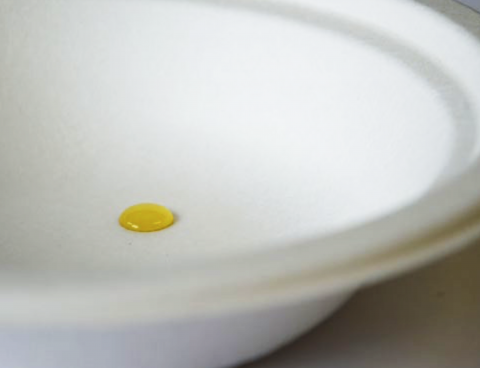Fast Food Packaging Shown to Contain PFAS

Prague/Brussels/London A recent study by Arnika found PFAS in a huge percentage of food packaging materials and tableware in popular fast-food chains across Europe. In cooperation with six other NGOs including IPEN, the study found that 76% of the samples tested were intentionally treated with PFAS, which is a class of chemicals frequently used for their oil- and grease-repellent properties. Additionally, traces of PFAS were detected in all samples, which should not be surprising given how they do not break down easily and migrate into water and the enviroment, earning them their "forever chemicals" moniker. All of the materials tested were items intended for a single use, including items for which sustainable alternatives exist.
“It is high time for the European Union to act and immediately and permanently ban the entire class of PFAS in food packaging, to protect the consumers in the first place. It is clearly not essential to use highly toxic and persistent chemicals, posing such a serious health and environmental risk, in throw-away food packaging, especially when there are safer alternatives,” says Jitka Strakova, the main author of the study and Arnika/International Pollutants Elimination Network (IPEN) science advisor.
Unnecessary uses, double standards, and safer alternatives
Where regulation has been put in place, it has effectively incentivized companies to move away from using PFAS compounds. In Denmark, the use of forever chemicals in paper and board food packaging has been banned since July 2020. The study found that none of the sampled McDonald’s french fries bags bought in Denmark exhibited PFAS treatment. However, intentional PFAS treatment was found for the same items bought in the Czech Republic and the United Kingdom. This shows that legislation can and does protect people from exposure to harmful chemicals. It also highlights that the lack of EU-wide harmonized regulations for food contact materials results in different levels of protection across countries.
“When Europe's stated objective is zero pollution for a non-toxic environment, we cannot accept that food packaging disposed of within a matter of minutes is treated with chemicals that persist and accumulate in the environment and are increasingly being associated with severe health impacts. The large European PFAS restriction under development is a once-in-a-century opportunity to address such uses and work towards phasing out the production and uses of PFAS, wherever they are unnecessary and it is possible,” says Natacha Cingotti, Health and Chemicals Lead at the Health and Environment Alliance (HEAL).
“PFAS pollution is so ubiquitous that we found PFAS even in products which have not been intentionally treated with these chemicals. The same PFAS contaminants have been found in the Arctic air, snow and wildlife. Every year of delay in regulating this group of ‘forever chemicals’ increases the pollution burden for future generations of people and wildlife. A ban on all non-essential uses of PFAS chemicals should be urgently implemented,” says Dr Julie Schneider, PFAS Campaigner at CHEM Trust.
As shown by the study, alternatives to PFAS-treated take-away packaging exist and are available on the market, including disposable paper and board packaging (e.g., sandwich and fries’ bags, and cardboard bakery and pizza boxes). Durable and reusable alternatives to moulded fibre tableware are also largely available for consumers, restaurants and retailers. The safest way for consumers is to move away from single-use packaging and to bring their own reusable containers when purchasing take-away food, according to the experts. To easily find out the presence of PFAS in fast-food packaging, consumers can do thebead test themselves.
The study was conducted in six different countries including United Kingdom, Denmark, Germany, France, the Netherlands, and the Czech Republic between May and December 2020. Samples collected included items such as sandwich and bakery bags, take-away food boxes, and tableware. Participating in the testing were BUND (Germany), CHEM Trust (UK), Danish Consumer Council (Denmark), Générations Futures (France), the Health and Environment Alliance (HEAL) (Belgium), Tegengif-Erase all Toxins (Netherlands), IPEN (International), and ClientEarth (UK).
